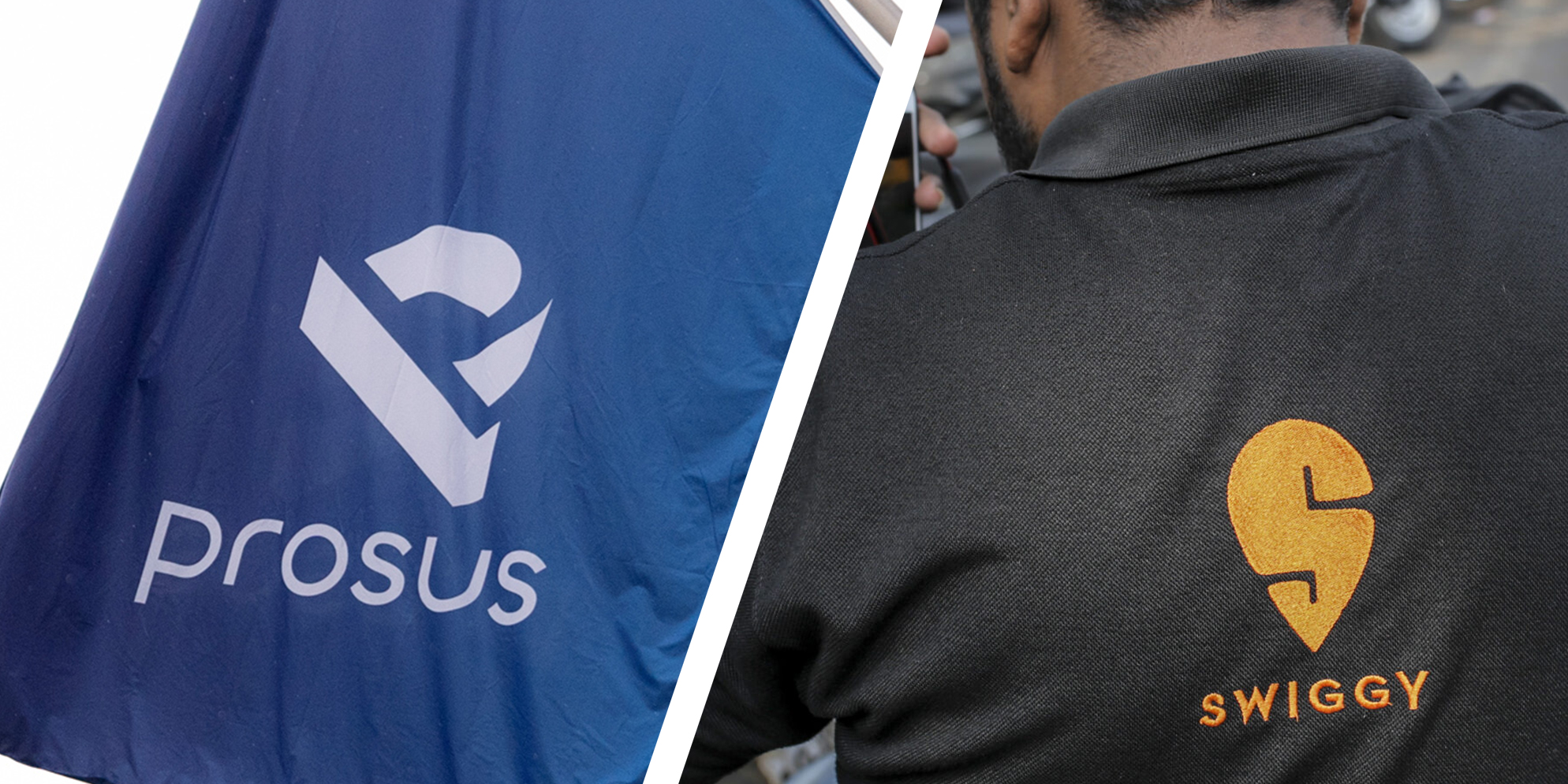Arguably, SA’s most crucial company from an investment perspective is the odd Naspers-Prosus duo (let’s call them Prosus), which had a big week with the listing of Indian food and grocery delivery company Swiggy.
The listing went off smoothly and the company’s share price has more or less settled a bit higher than the listing price. The valuation has been set at around $11-billion and Prosus has retained a 25% stake. Since 2017, Prosus has been the main funder of the business and has invested around $1.3-billion over the years.
So, with the listing, the Prosus stake is now worth $3.4-billion, and everybody is now extremely happy, right? Well, yes. But there is a bit of a back story here too, which is all about a big change in management style.
Previous Prosus CEO Bob van Dijk, who was a Dutch national, was known in the industry as the Buying Dutchman because of his propensity to spend vast amounts of the company’s cash on prospective targets. In some ways, the listing of Swiggy is a victory for Van Dijk, who identified the opportunity and kept pumping cash into the business until it reached this point. Van Dijk left Prosus in September last year.
Read more: After the Bell: Returning to the vexed question of why Bob van Dijk left Prosus
The problem is that although Swiggy is a victory, there was a whole string of others that went spectacularly toes-up. A classic example was the purchase in 2021 of Stack Overflow, which was bought for $1.7-billion and which has been written down to about $400-million. But the key to this decision was the sellers; some of the biggest names in the venture capital market: Andreessen Horowitz, Silver Lake Partners and Union Square Ventures.
Essentially, Van Dijk was betting that he knew more about the future prospects of the company than, not one but three of the most knowledgeable VCs in Silicon Valley. Turns out, they were right and he was wrong. And there were other investment transgressions too.
The counter-argument is that this is just how venture capital works. You take a lot of bets. Lots fail. But one of them ends up being Facebook, or something, and that pays handsomely for all the losses and much, much more. In a sense, this code was embedded deeply in Prosus’ own past. The company (in the form of Naspers at that point) famously paid $32-million for a stake in a Chinese tech startup called Tencent in 2001. That company is now worth half a trillion dollars.
But the problem is that once you get caught up in an idea, it’s easy for the idea to become your sovereign, not your subject. Taken as a whole, the market has been telling Prosus that while it’s been getting some things right some of the time, it should be getting more things right, more of the time. And the form that took was for Prosus to be valued at less than its 25% stake in Tencent.
At first, the company thought there were technical reasons for this valuation gap. Or perhaps it just wasn’t explaining itself to the market clearly enough. Surely all of its investments couldn’t be worth less than zero? Lots of them didn’t make money, but this is tech, which doesn’t always make money but still gets valued highly. And so we had this seemingly endless set of new listing destinations, the splitting of the company into bits, with now myriad cross-holdings. It was just nuts. Why the investment community went along with this craziness, I have no idea.
What the new management is now trying to do is very different; it wants to demonstrate value. Arguably, this is what the previous version of the company was trying to do too. But there has been something of a sea change under new group CEO Fabricio Bloisi. Much of the responsibility for the change also falls to Ervin Tu, the new group chief investment officer, whose job it will be to try and sort out the investment portfolio, not necessarily an enviable task. The job is really quite simple: choose better. Perhaps not quite as simple as it sounds.
Partly as demonstration of this mood, Prosus took some of its investment off the table in the Swiggy listing, reducing its stake by 5% and netting $500-million. There were technical reasons too, but the new incarnation of Prosus does want to show value rather than simply suggesting it.
Frankly, it’s refreshing but, as they say, the proof of the pudding is in the eating.
Business Maverick
After the Bell: Prosus basks in the glow of Swiggying for the fences
The listing of its food and grocery delivery company Swiggy went off smoothly, but the pressure is still on Prosus to demonstrate value.





